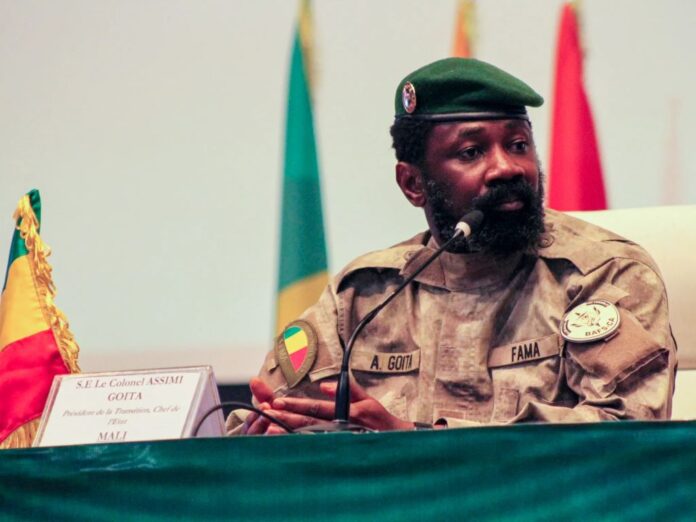Mali’s military government has officially dissolved all political parties and banned their activities throughout the country.
The announcement was made Tuesday on national television after an emergency cabinet meeting in Bamako. The junta also suspended the country’s charter regulating political parties.
Mamani Nassiré, Minister of Territorial Administration and Political Reform, defended the decision. “We are in a process of reforms,” he said. “New laws will be drafted to manage political life in Mali.”
Anyone who violates the ban faces penalties. The government has not clarified what those penalties are.
Officials who currently hold public positions through party affiliations may remain in office. However, they can no longer act or speak on behalf of their political parties.
Military Government Seeks to Restructure Political Landscape
The government says it wants to reduce the number of political parties, tighten registration requirements, and possibly end state funding for them.
Opposition groups and civil society leaders argue the decision is illegal.
Many say it violates Mali’s constitution and democratic principles. The decree has raised fears of a return to authoritarian rule, similar to General Moussa Traoré’s dictatorship which ended in 1991.
“With this decree, we have officially returned to dictatorship,” one former opposition minister said. “The fight will be tough, but Malians are historically committed to democracy.”
They referenced the 1236 Mandé Charter, widely seen as an early declaration of human rights in Mali’s history.
A prominent activist told RFI, “No surprise. We will continue to fight, even in the shadows. This dissolution adds to Mali’s already numerous problems.”
Another opposition leader stated, “This decision opens the boulevard to autocratic power. Our ideas will be expressed one way or another. The struggle will be organised and we will win.”
Opposition Faces Arrests, Disappearances, and Intimidation
Opposition voices have grown quieter in recent weeks. Some groups attempted to protest in early May. Hundreds gathered in Bamako with signs that read “Down with dictatorship, long live democracy,” according to Reuters.
In the days that followed, security forces detained or abducted several opposition figures.
Three opposition leaders are now missing.
Human Rights Watch reported that masked men claiming to be gendarmes arrested Abba Alhassane, secretary general of the opposition party CODEM.
That same day, “unidentified men” reportedly seized El Bachir Thiam, leader of the Yelema party, near the town of Kati.
On Tuesday, a CODEM member told Reuters that youth leader Abdoul Karim Traoré had not been seen for two days. “We believe he has also been taken,” the source said.
Mali’s Ministry of Security has not responded to requests for comment.
Delay in Return to Civilian Rule Fuels Distrust
The current military leadership came to power after two coups in 2020 and 2021.
Colonel Assimi Goïta, the head of the junta, had promised elections by February 2022. That timeline has been repeatedly pushed back.
A national conference last month recommended extending Goïta’s leadership by five more years and dissolving all political parties.
Political observers say the latest move follows that advice.
Opposition figures and democracy advocates say legal action is difficult because dissolved parties can no longer act in court under their former identities.
Meanwhile, fear of arrest and retaliation has silenced most public protests.
Rate, Like 👍, Comment, share this article and Follow us on our social media handles.






